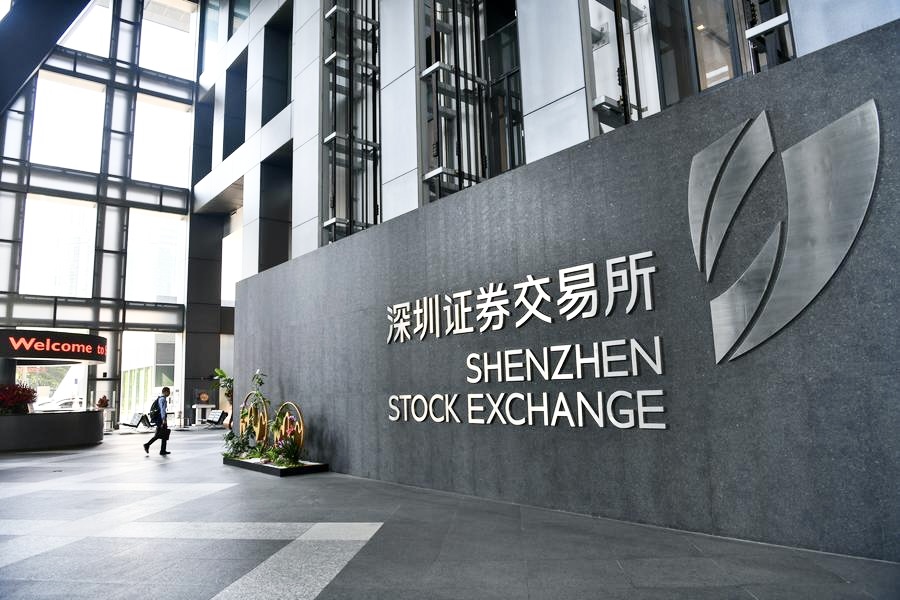
China's Shenzhen Stock Exchange on June 16 adjusted the constituents for major indices including the Shenzhen Component Index and ChiNext Index, adding more companies from emerging and high-tech industries, reflecting China's economic transformation toward high-quality growth.
The adjusted indices will better represent the direction of the development of new quality productive forces. For example, the changes to the ChiNext Index, which tracks China's Nasdaq-style board of growth enterprises, will further optimize its structure to emphasize emerging growth sectors, including next-generation information technology, new-energy vehicles and healthcare.
Among the constituents of the ChiNext Index, their research and development investment in 2024 grew by an average of 10 percent, injecting new momentum into the index, according to a statement on the website of the Shenzhen Stock Exchange.
As one of the benchmark indices in the A-share market with the highest proportion of the manufacturing industry, the Shenzhen Component Index will see the weight of manufacturing companies account for 73 percent after the latest changes, with 211 companies reporting growth in both revenue and profit in 2024, it said.
On the same day, the Shanghai Stock Exchange (SSE) officially launched the SSE 580 Index in collaboration with the China Securities Index Co. The index selects 580 stocks with relatively small market capitalizations and strong liquidity from companies listed on the SSE, aiming to reflect the overall performance of smaller-cap listed firms, according to the bourse.
After the adjustments, major indices of the Shanghai and Shenzhen stock exchanges will be more focused on the transformation and upgrading of the real economy and tech innovation, which will likely directly guide more capital into high-growth areas and strengthen the capital market's function of serving the development of new quality productive forces, according to Xi Junyang, a professor at the Shanghai University of Finance and Economics.
He said that this is part of the country's policies to boost the stable and healthy development of the capital market so as to bolster the real economy.
In early May, the People's Bank of China and the China Securities Regulatory Commission jointly announced that financial institutions and tech firms, as well as private equity and venture capital firms, will be allowed to issue technological innovation bonds, with funds raised in this manner earmarked for investment and financing in the innovation sector.
Chinese stocks closed higher on June 16, with the benchmark Shanghai Composite Index up 0.35 percent to 3,388.73 points, while the Shenzhen Component Index closed 0.41 percent higher at 10,163.55 points. The ChiNext Index gained 0.66 percent to close at 2,057.32 points.
China's support policies to stabilize the capital market have strengthened investors' confidence.
"Overall, we have seen improved interest in Chinese equities," James Wang, head of China Equity Strategy Research at UBS Investment Bank, wrote in a note.
Most foreign investors seem to agree with the assessment that the China equity market is now better placed to withstand external shocks compared with many other regions, Wang wrote, noting that internet continues to be one of the most favored sectors among foreign investors.



